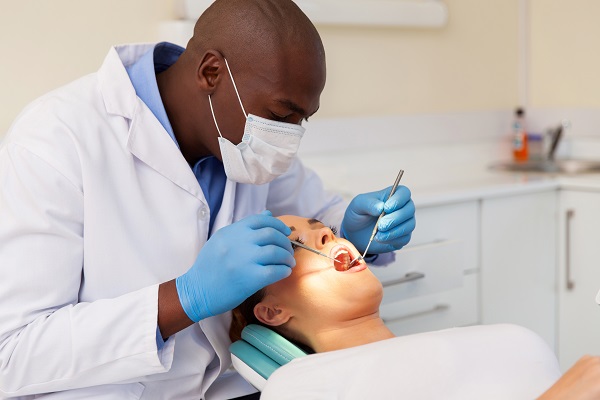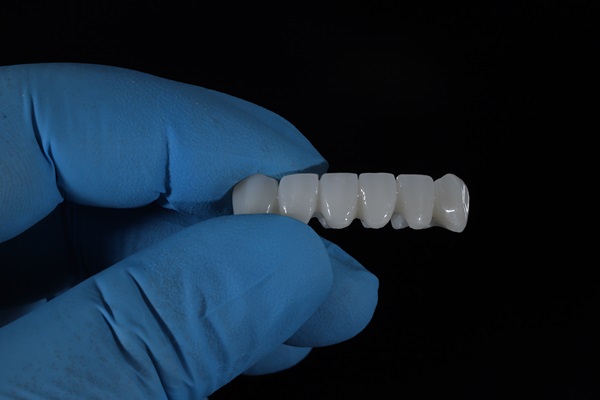Risk Factors for Oral Cancer

There are certain risk factors for oral cancer that are important to be mindful about. Along with routine oral cancer screenings from your dentist, it is encouraged to check for any early signs of oral cancer every so often, especially if you meet one or more of the criteria for being at higher risk.
Oral Cancer Risk Factors
By understanding these risk factors, you can better prepare yourself and take the necessary precautions to minimize the chance of developing the condition. The following are five of the more notable risk factors that indicate a person might be at higher risk of oral cancer.
Family history
There is a hereditary component to oral cancer, which means there seems to be an indication that a person has a greater chance of developing the condition if another member of their family had it in the past. Of course, there are many contributing factors to the development of oral cancer, but it is encouraged to visit the dentist for an oral cancer screening if oral cancer runs in the family.
Tobacco
Tobacco is believed by many experts to be the most notable risk factor of oral cancer, and there seems to be a strong correlation between the use of tobacco in any form and cancer of the cheeks, gums, lips, head and neck. Subsequently, most dentists encourage patients who smoke to try and defeat the ugly habit.
Alcohol
Alcohol also puts people at an increased risk of developing oral cancer. Of course, having a glass of wine with dinner is not a bad thing. The frequent consumption of large amounts of alcohol, however, is very detrimental to long-term health and may lead to the onset of oral cancer.
Sun exposure
Many studies suggest there is also a link between prolonged sun exposure and oral cancer, particularly cancer of the lip area. Similar to tobacco and alcohol use, minimal levels of sun exposure do not contribute to oral cancer. However, dentists encourage patients to protect themselves from UV radiation when outside for prolonged periods of time.
HPV
The HPV virus, otherwise known as the human papillomavirus, also puts people at a higher risk of developing oral cancer, particularly cancer in the tongue or throat. HPV is most commonly transmitted through sexual activity, and it is important to reduce the risk by practicing safe sex and limiting the number of sexual partners.
Visit a dentist for an oral cancer screening
An oral cancer screening is a great way to detect the earliest signs of oral cancer, which allows dentists and doctors to start treatment as soon as possible if cancer does exist. On the other hand, ruling out cancer allows people to live a more relaxed life, knowing they are free of oral cancer. If you are interested in learning more about oral cancer risk factors or would like to schedule a time for an oral cancer screening, consult with us today and find out how we can help.
Request an appointment here: http://irvineimplantdentistry.com or call Canyon Dentistry at (949) 753-6000 for an appointment in our Irvine office.
Check out what others are saying about our services on Yelp: Read our Yelp reviews.
Recent Posts
Wondering what the signs of oral cancer are? General dentists are specifically trained in performing oral cancer screenings and thus know exactly what to look for. Dental patients can also check for signs in between screenings.Learning how general dentists perform oral cancer screenings will help dental patients know what to expect when undergoing this important…
Are you thinking about making an appointment with a laser dentistry? This recent form of dentistry is becoming more common in both preventive and restorative care. It is helpful to learn more about what this professional can do and how visiting one can benefit your oral health and smile. In laser dentistry, the dentist can…
Preventive dentistry is important in maintaining oral health. Visits in this field of dentistry involve treatment and dental education. These appointments aim to prevent gum disease, cavities, and enamel wear. They result in an attractive smile and healthy teeth. If you want to know more about vital preventive dentistry visits, here are the details.Preventing the…
A traditional dental bridge can replace up to three or four consecutive teeth on the same side of a dental arch. It is one of the most common dental replacements you can get. Knowing how to care for it can help maintain your new smile for a long time. Here are some tips for ensuring…


